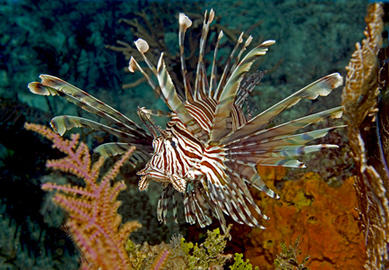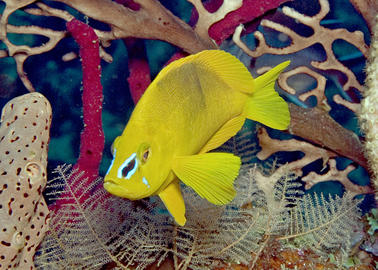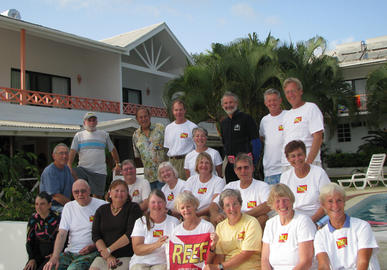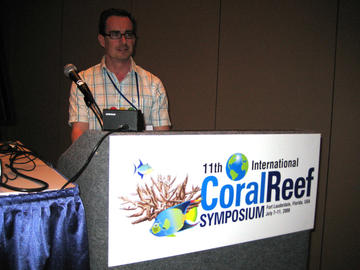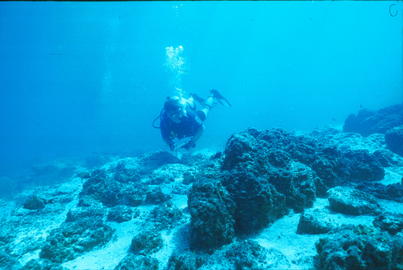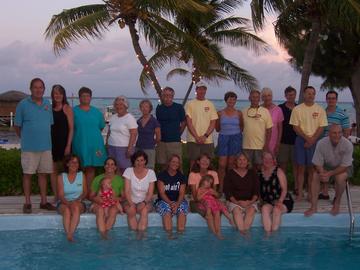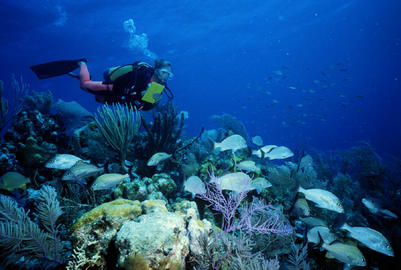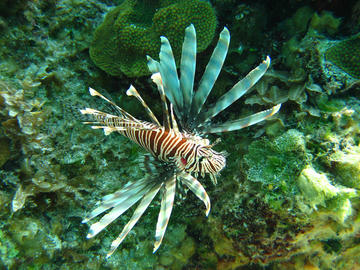The 5 P’s, Prior Planning Prevents Poor Performance and hindsight give you 20/20 vision, both play into REEF Trips. Keeping these mantras in mind, let’s talk about the 5 P’s first.
On August 13th, Lad Akins, lead on REEF's lionfish efforts, was an invited presenter to the Caribbean Fisheries Management Council and other meeting attendees at its bi-monthly meeting in St Croix, USVI. The council is charged with advising the National Marine Fisheries Service on regulations and issues related to commercially valuable marine life species in Puerto Rico and the USVI of St. Thomas, St. John and St Croix.
While every one of REEF’s 10,000+ volunteers who have conducted a survey as part of the Volunteer Survey Project are Making Dives That Count, there is a small cadre of surveyors who have taken their passion for fish and critter watching to the next level. They are the volunteers, those most active in each of REEF’s project regions, who have actively strived to move through the REEF Experience Level system, often becoming REEF Experts and members of the Advanced Assessment Team (AAT).
As any veteran fish surveyor is well aware, dive travel is the spice of fishwatching. No matter how many dives you’ve made, or how many species you’ve recorded a visit to a new destination will send you scurrying for your ID books. That was certainly the case during back-to-back REEF Field Surveys held in St. Vincent during early August.
REEF staff recently returned from the 11th International Coral Reef Symposium (ICRS) in Ft. Lauderdale, Florida, where nearly 3,000 scientists, conservationists, and government officials met to compare notes, network and identify problems and solutions for the ocean's most delicate ecosystem. This is the keystone scientific meeting on coral reef science. REEF Director of Science, Dr. Christy Pattengill-Semmens, gave a talk on the science and management applications of the REEF database and presented a research poster on the same topic.
The M/V Wellwood, a 122-meter freighter, ran aground in 1984 on Molasses Reef off Key Largo, Florida. The grounding destroyed 1,285 square meters of living corals. The grounding transformed the area into a flattened, barren pavement covered with coral rubble. Eighteen years after the grounding, the area resembled nearby hard ground habitat with little structure and the benthic community was dominated by gorgonians.
As Audrey reported in the previous article, REEF Field Surveys are more than just your average dive vacation. Not only are you joined by like-minded divers and led by dynamic experts in marine life, but the trips often include opportunities to learn more about a local culture and even participate in conservation activities or research. We already have several great destinations lined up for 2009 and are finalizing several more trips for the calendar.
- One female space just opened up on the upcoming Baja Mexico Field Survey aboard the Don Jose Liveaboard. This trip has been sold out for a while and we don't expect the space to last long. The trip begins and ends in La Paz and runs October 5-12. Check out the trip flyer to find out more. Contact Jeanne from Baja Expeditions at 800-843-6967 or travel@bajaex.com.
REEF eclipsed a milestone this week when the REEF Volunteer Survey Project Database passed the 120,000 survey mark. This represents over 150,000 hours of underwater survey time from our volunteers. The achievement comes almost 15 years to the day when the first REEF fish survey was conducted off Key Largo, Florida, on July 17, 1993. Today, the program is going strong throughout the coastal areas of North and Central America, the Caribbean, Bahamas, Galapagos Islands and Hawaii.
Nassau, Bahamas - July 30, 2008 -- Up early this morning and readying for another big day on the lionfish front. As part of an Associated Press story on the lionfish, I am joined by Andy Dehart and Lisa Mitchell here in Nassau to shoot footage of our lionfish work and do interviews for an AP television segment. We'll be live collecting fish, tagging a few and talking about the current research being conducted by REEF, NOAA, Simon Fraser University and Oregon State University - research showing that the lionfish appear to be having severe impacts on our native fish populations.

